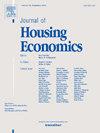教育成果公平与家庭择校偏好:来自中国教育改革的证据
IF 2.4
3区 经济学
Q3 ECONOMICS
引用次数: 0
摘要
将成果公平纳入中国基础教育均等化改革,标志着中国在解决优质教育资源短缺和教育机会空间差异问题上迈出了重要一步。本文建立了纳入配额分配政策的择校模型,并分析了配额分配政策对择校和学区房价的影响。本文采用广义差中差框架,评估了结果公平政策在中国上海的影响。实证结果显示,实施配额分配政策后,上海学区房价平均下降0.0466%。此外,家庭在选择学校时优先考虑分配配额和最低分数的竞争优势。此外,政策影响因收入群体而异,由于择校灵活性的增加,中低收入家庭表现出更强的响应能力。通过将家长的偏好从精英初中的排他性竞争中转移出来,结果公平改革促进了学生组成的更平衡分配,最终提高了教育质量和公平性。本文章由计算机程序翻译,如有差异,请以英文原文为准。
Equity of educational outcomes and families’ school choices preferences: Evidence from education reform in China
Integrating equity of outcomes into China’s basic education equalization reform marks a significant step toward addressing the shortage of high-quality educational resources and spatial disparities in educational access. This paper develops a school choice model incorporating the quota allocation policy, and analyzes its impact on school choices and school district housing prices. Using a generalized difference-in-difference framework, we assess the impact of equity-of-outcomes policy in Shanghai, China. The empirical findings reveal that school district housing prices in Shanghai decline by 0.0466 % on average following the implementation of the quota allocation policy. Furthermore, families prioritize the competitive advantages of allocated quotas and minimum scores when making school choices. Additionally, the policy impact varies across income groups, with middle- and low-income households exhibiting greater responsiveness due to increased flexibility in school selection. By shifting parental preferences away from exclusive competition for elite junior high schools, the equity-of-outcomes reform fosters a more balanced distribution of student composition, ultimately enhancing educational quality and equity.
求助全文
通过发布文献求助,成功后即可免费获取论文全文。
去求助
来源期刊

Journal of Housing Economics
Multiple-
CiteScore
3.30
自引率
4.20%
发文量
35
期刊介绍:
The Journal of Housing Economics provides a focal point for the publication of economic research related to housing and encourages papers that bring to bear careful analytical technique on important housing-related questions. The journal covers the broad spectrum of topics and approaches that constitute housing economics, including analysis of important public policy issues.
 求助内容:
求助内容: 应助结果提醒方式:
应助结果提醒方式:


